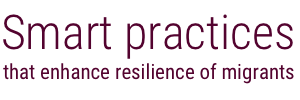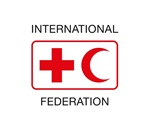A response plan to quickly mobilize support after a migrant influx and use simulations to train response teams.
The Lebanese Red Cross Disaster Management Unit developed a response plan that can welcome 200 families within three hours. Lebanon received a sudden influx of 200 families in 2015, which no actor was prepared to receive. A response plan was developed following the lessons from this experience. The plan covers the needs of migrants for up to a week including the set-up of suitable accommodation. The Lebanese Red Cross has set aside the funds to cover the first week. They intend to use that week to find a more permanent solution with a partner, or secure additional funding. The Swiss Red Cross is supporting logistics capacity-building for the plan at Headquarters level in the necessary regions. During three hour simulations, teams are trained to set up a full camping area to host 200 families for one week. A mid-term Contingency Planning Process (CPP) aims to build capacities and infrastructure to increase emergency preparedness and assume the tasks outlined in the overall National Response Plan. As part of the response plan, the Lebanese Red Cross has pre-established three agreements to facilitate quick deployment: (1) with local municipality and authorities to provide a specific area for a campsite; (2) with local hospitals and the medical-social department to provide health services (including preparedness of blood banks run by the Lebanese Red Cross); (3) with local bakeries and suppliers to provide food for one week.
Other examples. During the influx of migrants into Finland in the summer of 2015, the Finnish Red Cross successfully scaled up operations from managing six reception centres to 106. To achieve this, it mobilized surge capacities from the international delegate roster, the Logistics Centre, the volunteer network and citizen support. A high level of preparedness for this particular scenario, pre-agreed roles, and agreement with the authorities made quick action possible. Volunteers were provided with a set of clear guidelines on how to set up reception centres. Volunteers then managed the centres until permanent staff were hired.
- Even with response plans in place, the reality of the situation requires up-to-date information and decisiveness.
- Each branch needs to have specific arrangements that match the likely needs (the situation that is most likely to occur in their region).
- Clear guidelines and checklists are key tools for enabling volunteer groups to autonomously establish required services.

